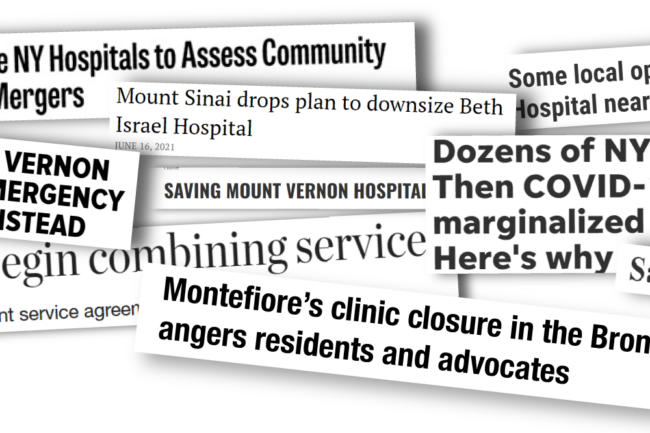Medical bills are complicated – But this guide can help you assert your rights
Medical bills are confusing. Undoubtedly, many of us have received a medical bill at some point that we couldn’t understand.
Samuel in Ohio knows this experience all too well. He is one of many people who have faced a puzzling billing process while trying to focus on getting better.
In 2021, Samuel was diagnosed with kidney stones that required emergency surgery. Samuel’s original medical bill was $25,000, which was an error and was actually meant to be $6,000. No one from the hospital or his insurance discussed any payment assistance options with him. He wasn’t able to keep up with the bills and his debt was transferred to a third-party collections agency.

To date, Samuel is still paying off this debt and his credit continues to suffer.
Samuel isn’t alone in his experience.
Whether you’re insured or uninsured, medical billing processes and policies are complicated, and a lack of transparency from providers can make navigating the billing process even more difficult.
With the cost of health care remaining incredibly high, more medical bills are being punted towards patients. The effects of this are devastating – nearly 100 million adults in the U.S. have medical debt.
The millions of families carrying medical debt cannot afford to wait. People need help now.
That’s why Community Catalyst and U.S. PIRG Education Fund teamed up to create Medical Bills: Everything You Need to Know About Your Rights. This user-friendly resource can help you use your rights to avoid unnecessary billing charges, tackle billing errors and handle debt collectors, regardless of your insurance status.
This guide is here to help you navigate medical bills and tackle other common charges in health care settings – like when you need emergency care, are scheduling care at a hospital, or are faced with unaffordable medical bills.
You can use the guide to easily find definitions for terms like “copay” and “coinsurance” to better understand your coverage and medical bills.
Community Catalyst and the U.S. PIRG Education Fund hosted a webinar about the resource in July where the authors walked attendees through the guide and answered questions from audience members.
Below, we’ve included some useful tips you can find in the guide:
Keep notes of your conversations with insurance companies and billing offices
Include the date, time, name of the person you’re speaking with, and what they tell you. Save all bills and documents from your provider and health insurance plan, and keep them together in the same, easy-to-find place.
Ask: “Are you part of my insurance network?”
Asking if a provider is a part of your insurance network rather than asking if they take your insurance can help you avoid surprise bills. Some providers who are out-of-network will say they “take” your insurance – but what they mean is that they will bill your insurance. This isn’t the same thing as being “in network.”
Know what bills the No Surprises Act protects you from
The No Surprises Act protects you from “surprise medical bills” when you receive treatment for an emergency in an out-of-network emergency room and/or from out-of-network emergency room doctors.
Through the No Surprises Act’s protections, you will only owe the out-of-pocket costs that would have been charged if that emergency room and its physicians were in your health insurance plan’s network.
The act protects against surprise bills from emergency air ambulance rides, but not from ground ambulances.
Avoid urgent care centers
These centers, even if they are located near a hospital, are not included in the No Surprises Act, meaning you are not protected against “surprise medical bills.”
Request language assistance if necessary
If English is not your primary language, you have the right to request and receive language assistance when receiving health care. You may ask for an interpreter and/or translation of all documents related to your medical services, including medical bills, financial assistance application, and consent forms.
Ask about financial assistance
It is never too late to see if you’re eligible for financial assistance. Many hospitals, especially non-profit hospitals, provide financial assistance programs in the form of free care (also called “charity care”) or discounted care to uninsured and insured people. You can usually find information on the hospital’s website or by calling the billing office.
Explain your financial situation and ask if you can speak to someone about whether you are eligible for financial assistance. Be respectful and patient, but ask clearly for the help you need. Don’t take “no” for an answer.
If you need help applying for financial assistance, contact Dollar For. You may also contact a legal aid organization in your area for assistance.
Avoid paying bills with credit cards or signing up for medical credit cards/loans
When you use a credit card for medical bills, you lose your ability to negotiate the amount of the bill, your medical bill may become more expensive due to late fees and high interest rates, and you could lose your medical debt protection rights.
Some health care providers, including dentists and eye doctors, offer medical credit cards or medical loans to patients who don’t have insurance coverage or can’t afford to pay for treatments. Avoid these cards – they’re predatory medical financing schemes and can become a debt time bomb as you may be subjected to significant and unexpected interest expenses.
Check out the guide for even more helpful tips.
Seeking health care in the U.S. can be scary. The endless labyrinth of complex insurance policies and billing practices places an undue burden on patients, but patients should know that they have rights.
Using our guide to assert your rights can potentially save you from spending more on care.

